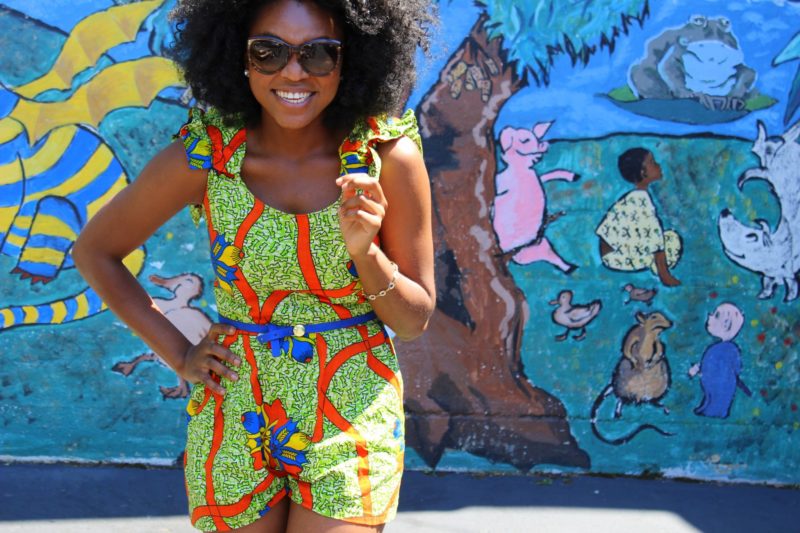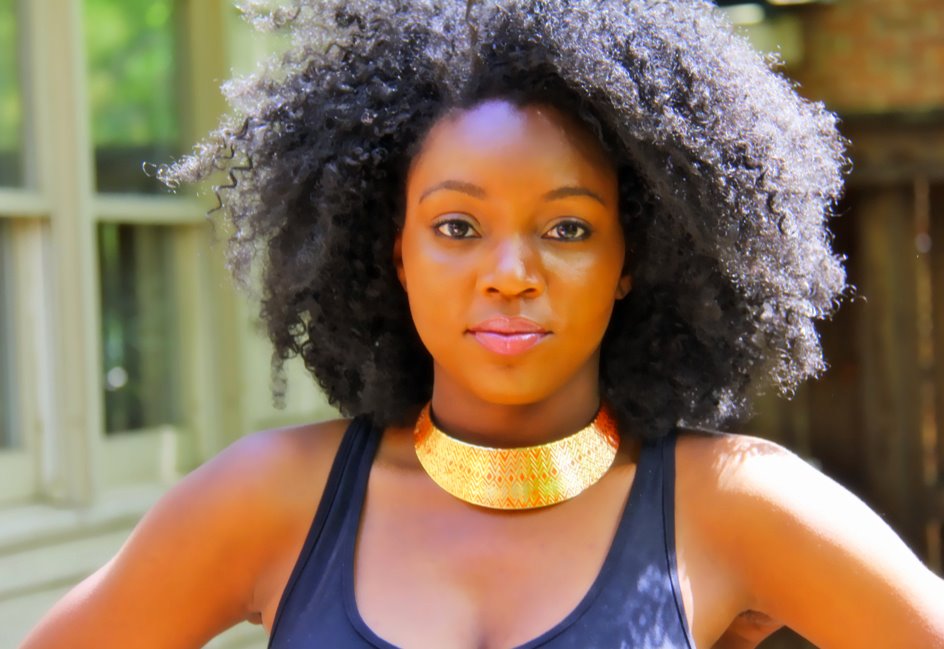If you have lived in Nigeria at least over the past 3 years, you may have noticed that ever since the economic downturn up until now, moving overseas has become more of a trend than ever before, due to the hardship experienced by many.
Many are fleeing the country to seek greener pastures in the Western world.
But Nigerian-American millennial, Didi Ajayi, actually did the opposite – she gave up a comfortable life in the United States to move back to Nigeria.
I recently caught up with her for a quick chat about her journey, and boy did she drop some gems! We all could learn a thing or two from her willingness to embrace the unknown to find a unique path for herself.
Read and be inspired.
BACKGROUND
Tell us about yourself
My name is Didi. By profession, I’m a lawyer.
I attended the University of Georgia where I got a degree in Psychology, and went on to Law school, and I got my JD. And then I moved back to Nigeria and went to Nigerian Law school and became a barrister at Law after doing the bar exam here. Then I started practicing.
I worked at a law firm here in Nigeria, but recently became an entrepreneur – I co-own a legal consulting start-up company. In my spare time I like to blog. Before I moved to Nigeria I had a natural hair blog that I was really into. And after I moved back to Nigeria I kinda wanted to document my experiences living in Nigeria, so I started a vlog series about this. I wish I knew the things that I know now, before I moved back. Like things I could have avoided or known about how to make my transition easier. I wanted to do the vlog for people in diaspora, who are considering moving back. Showing them what living here is like. Although there are some bad sides, there are lots of good sides, and that’s the reason why I’m still here.
Why did you move back to Nigeria despite having an amazing life in the US?
Although I’m American and grew up in the US, I was actually born in Nigeria.
My dad lives here, and half of my siblings grew up here in Nigeria. When I lived abroad, I used to spend some of my vacation time here in Nigeria.
Every time I visited, I really enjoyed my stay, and I saw that there was potential here even though some people didn’t really this. I would say I moved back because I’m a bit idealistic. Some people usually say I’m a bit too optimistic.
I had always been interested in moving back home. So my dad suggested that while attending Law school in Nigeria, if I was really interested in testing the waters and working here, I could look for internships at law firms and just see how it goes.
As fate would have it, I eventually ended up working at the law firm I interned at. I enjoyed my experience so I thought that since I had worked in the US, there was no reason why I could not do that here.
I think there’s something interesting about working in a developing county where everything hasn’t fully developed. You can actually be a pioneer and make you own stuff here, whereas in the US it’s a lot harder to do so. Here, there aren’t as many obstacles if you want to establish yourself. Also, there’s some certain level of comfort just knowing that I have family and people here that I really didn’t have in the US. Even though my mom and my sister are still in America, I decided to move back.
THE MOVE
On challenges experienced when she first moved back
I had so many! I think my moving back experience was kind of different from a lot of people that moved back here, as most were probably doing their NYSC.
In my own case, I moved back and went to law school in Abuja. I had never gone to to boarding school or anything. So being at the law school felt like living on campus for the first time, which was very different. It almost felt like I was going to high school not even college. I felt trapped at some point.
I was so used to having internet. On the first day I came into the country, I used up all my data because everything was running, all my apps etc. So I had to get used to that.
I was pretty much used to the people in a sense because I was coming home during vacation. But when I started working here, I didn’t realize that co-workers and people in general, would could care so much about details about your personal life. This took some getting used to, as I was accustomed to being a lot more private about intimate details about my life. It was a norm for me to keep my personal life very separate from my work life.
Those were the things that I think were the biggest things I had to get used to when I came back.
Making friends
I moved back in my late 20’s. I think that when you get older you are kind of like at this place in your life where you know what you want, and the kind of friends you need in your life. So making friends just becomes a lot harder and a lot of people have their own social circles so it was hard to integrate people’s social circles.
When I was going back to school, I found out that a lot of people were younger than me. People are taking that step earlier in Nigeria, unlike in the US. I worked before I went to the Law school in the US. So making friends was a bit of a challenge.
I think growing up in the US, the culture is a bit more open. You have more people opening up, sharing and talking. Just generally being ourselves. This is kind of the reverse in Nigeria – which kind of felt weird. I find out that as women here in Nigeria, we have to be a bit more guarded and less open. When I first encountered this, I didn’t like that feeling. But luckily I found friends who I could be myself with. It took a lot of time but I eventually figured it out.
On meeting the love of her life
In terms of dating, it’s funny because I met my husband basically the first day at school. So I didn’t really do much of dating.
I feel like my mom and aunties use me as an example to their friend’s daughters. They are like “do what DIDI did, move back, you will find your husband” lol.
I don’t know if it was luck or God because I totally didn’t see this coming.
The highest point of moving back
Definitely, meeting my husband was my highest point of moving back, I definitely would have never met him without moving back because he has actually never been to the US. He grew up in the UK.
I think that moving back made me discover certain aspects of my character – this is like the most adventurous thing I have ever done. It made me step out of my comfort zone in a way I was never capable of. I was always that type of person that when there’s a road map set, I follow the road map. E.g: Go to college, go to graduate school, work, get a job… and that would have been my story till the end of my life.
When I applied to Law school, I had no vision of the future. I just knew that I wanted to do this and see where it goes. My move back showed me that I am adaptable and that sometimes, you do have to step out. And sometimes a risk is worth it in order to get a bigger reward.
Also, it challenged me to have to step out in order to make major changes. It convinced me that no matter what the situation may be, I do have the capacity to make it, and even thrive.
 ADAPTING
ADAPTING
On getting used to Nigerian currency
I had to first of all, stop thinking in dollars. I used to convert everything into Naira, thinking everything was cheap. But the reality was that I wasn’t earning money in dollars, especially when the exchange rate changed.
I had just started working and the salary just wasn’t adding up to what I was earning in the US. In the beginning of 2017, I had to try to figure things out. I had to be a lot more economical and I realized that this was why everyone seemed to have a side hustle.
I realize that if you are doing only one thing, it’s kind of difficult to survive – and not only just surviving, but being able to afford some luxuries in life.
I feel like that’s why people have other avenues of income streams, especially if you are employed by someone else. It made me hustle more.
The currency difference made me be more economical in my purchasing choices.
Driving
I was really scared when I first started driving in Lagos. In Abuja, it was quite easier because the road was wider, but Lagos was scary. So what my parents did was to get our gate man to teach me how to drive from home to work and he taught me different routes. He drove like a Danfo driver so the driving was a bit aggressive, but he also gave me different safety tips. The next week, I drove by myself, and I was literally holding my breath because I was really wondering what I would do if something bad happened. But soon, I adapted just fine.
LEISURE
How she lets her hair down
I feel like Lagosians, out of all Nigerians like to have variety I n terms of having places to go, what to do, things to do. What I do for fun depends on my circle. Sometimes we go clubbing. I am kind of nerdy so I may just visit the museum, but I haven’t found a friend who would want to go, so I just go there myself.
I love nature, I feel like I have gone to the Lekki conservation center too many times. I love travelling – I’m from Awka Ibom state originally, so I will just go there or go to Port Harcourt in my spare time.
I like writing, reading and watching movies. My husband likes to play football so I will go and watch him play sometimes. I also like to do fun fitness classes and activities

ENTREPRENEURSHIP
On what advice she would give young women who want to own their own businesses
I am still at the inception stage of my business, so I try to have extra money saved up so that I can withstand not having money for a long time.
I have a partner so we work as a team. It is challenging when you first start out for sure. Even if you are working, you keep asking yourself, “where am I gonna get the time and the money to grow this business and also get clientele?”
My advice would be for you to just take on what you can handle and try to do it to the best of your ability. Do your works so well that people would be so impressed by the the standard and quality of your work , that they will keep coming back to you.
You also need to network. You have to get to know people and show them what you are capable of. Sometimes it may take offering services for free or discounted rates so that they can know who you are and see what you can offer, and then you can go from there.
CULTURE
Her thoughts on being a Black, African woman in Nigeria Vs. in America
Being a Nigerian woman in the US, I was relating with more White people, so I didn’t necessarily have an African experience – I had more of a Black American experience.
I would say that one of the major differences is that in the US, no one was really asking me about my personal life except my parents. There wasn’t that much pressure socially. But when I moved to Nigeria, there was a huge difference. I found that people just wanted to pry into your personal life, and I’m like “why are we having these conversations? Why am I being treated differently when I am single compared to when I’m married?”
When I got married, I was getting questions like “When are you having a child?” It was very weird that people that are not close to you are coming to you to ask such a question.
Certain words and actions people expressed when I first moved back to Nigeria, made me feel like women were not valued in the society.
Advice on moving back to Nigeria
- Do your research, we are fortunate to have Internet access and you have Google. Also, reach out to people who have moved back. Visit before moving back.
- Your mindset would determine how this goes for you. In addition to having a positive outlook, you also have to be quite open to possibilities.
- Have fun. Try and enjoy it. Meet and mingle with people you probably normally wouldn’t interact with. Live in the moment.
Connect with Didi on social media (@afrocurlitan):


 ADAPTING
ADAPTING